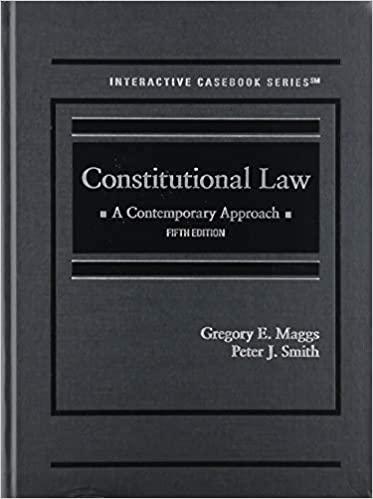Question
1. The Felton LLC defined benefit pension plan provides an annual benefit that is equal to 1.5% of the employee's final 5 years of compensation
1. The Felton LLC defined benefit pension plan provides an annual benefit that is equal to 1.5% of the employee's final 5 years of compensation multiplied by the employee's years of service, payable as a single life annuity for the life of the employee. Which portion of this formula is the normal form of benefit?
a.The employee's years of service
b.The single life annuity for the life of the employee
c.The 1.5% of compensation
d.The final 5 years of compensation
2. Which of the following statements is/are true of coinsurance? (Select all that apply)
a.It is a percentage of the cost of the service
b.It is paid by the employee
c.It counts toward satisfying the deductible
d.It counts toward satisfying the out-of-pocket maximum
3.Which of the following are types of benefit formulas available in a defined benefit pension plan? (Select all that apply) a.A formula that multiplies the participant's years of service by a dollar amount or percentage of compensation
b.A formula based only on a participant's years of service
c.A formula that decreases benefits as participants get older
d.A formula with a notional account that looks like a defined contribution plan
e.A fixed dollar amount or fixed percentage of compensation
4.Which of the following statements is TRUE about a plan termination? a.Plans can never be terminated
b.Benefits are fully vested in a health and welfare plan
c.Benefits are fully vested in a retirement plan
d.All benefits are immediately paid
5.Which of the following are potential types of tax-qualified retirement plans? (Select all that apply) a.IRAs
b.Stock bonus plans
c.Stock options
d.Profit-sharing plans
e.Pension plans
6.Which of the following is NOT a true statement about ESOPs?
a.ESOPs are only a good plan for financially struggling companies
b.ESOPs can be used as a tool of corporate finance
c.ESOPs are designed to primarily invest in employer stock
d.ESOPs are a type of tax-qualified retirement plan
7.Which of the following are ways employers can try to manage or control the costs of their benefits? (Select all that apply)
a.Take steps to maximize claims b.Remove employee contributions
c.Find alternative funding options (like self-funding)
d.Add probationary or waiting periods to get in the plan
e.Remove benefit limitations
8.Which of the following are permitted change in status events under a cafeteria plan? (Select all that apply)
a.Cost or coverage changes of benefits available through the cafeteria plan
b,.Any special enrollment right under HIPAA
c.Change in employment status
d.An increase in salary
e.Change in work location
9.Which of the following is a true statement about cafeteria plans?
a.They are required to have a plan document.
b.They do not have any nondiscrimination rules.
c.They can allow deferred compensation for any benefits.
d.They do not allow money to be taken out pre-tax.
10.Please place the "5 ways to buy insurance" in order from the employer taking the least risk for claims to the employer taking the most risk for claims.
Fully Self-funded
Partially Self-funded
Level-funded
Captive Insurance Company
Fully insured
need help !
Step by Step Solution
There are 3 Steps involved in it
Step: 1

Get Instant Access to Expert-Tailored Solutions
See step-by-step solutions with expert insights and AI powered tools for academic success
Step: 2

Step: 3

Ace Your Homework with AI
Get the answers you need in no time with our AI-driven, step-by-step assistance
Get Started


